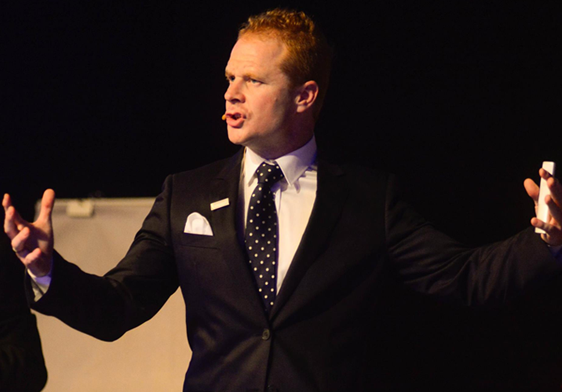At a glance
- Limiting beliefs are mindsets we have developed in the past that prevent us from taking action in the present.
- These beliefs may result from a painful experience, continuous rejection or other factors. But mostly, their role is same-to protect us from future pain.
- Expressing gratitude and practising positive self-talk are some great to release limiting beliefs to step into our highest selves.
As a life coach, I have worked with many clients who struggle with changing limiting beliefs. These beliefs can significantly impact a person’s life, preventing them from reaching their full potential and achieving their goals.
I remember working with one client who had convinced themselves that they could not start their own business. Despite having the necessary skills and experience, they were too attached to their limiting belief that they couldn’t succeed on their own. It was after we worked together to confront and challenge this belief that they could take the necessary steps towards entrepreneurship. This experience taught me the power of limiting beliefs and the importance of helping individuals overcome them.
In this blog post, I will explain limiting beliefs, how they develop, their impact on our lives, and techniques for changing our negative self-talk to positive self-talk to release these limiting beliefs.
What is a limiting belief?
A limiting belief about ourselves and the world prevents us from reaching our full potential. These beliefs are often negative and can be deeply ingrained, making them difficult to change.
As a life coach in Australia, I have worked with many clients who are convinced that their limiting beliefs are their reality. I understand how difficult it can be to break free from these thoughts, especially when you’ve become too attached to them and have ascribed their finality. I’ve seen firsthand how these beliefs can keep people from reaching their true potential and living fulfilling lives. However, with the right guidance and techniques, it is possible to confront and change these limiting beliefs.
Some common limiting beliefs include:
- I’m not good enough.
- I don’t deserve success.
- I’m too old/young to achieve my dreams.
- I’ll never find love.
- I’m not smart enough.
How limiting beliefs develop
Limiting beliefs can develop for a variety of reasons, including our upbringing, experiences, and interactions with others.
According to Jungian psychology, limiting beliefs can also stem from our unconscious mind and our shadow self. The shadow self is a part of our psyche that contains our repressed or disowned qualities and traits. When we deny or ignore these aspects of ourselves, they can manifest as limiting beliefs that hold us back from our true potential.
For example, suppose someone strongly desires to pursue a creative career but has been taught to believe that practicality and financial stability should be the top priority. In that case, their shadow self may create a limiting belief that pursuing a creative career is unrealistic or frivolous.
It’s important to recognize how our upbringing, experiences, and unconscious mind can play a role in developing limiting beliefs. By understanding their origin, we can challenge and ultimately change them.
The impact of limiting beliefs
Limiting beliefs may have a detrimental impact on your life. They can make you risk-averse and prevent you from pursuing your dreams and achieving your goals. They can also lead to low self-esteem, anxiety, and depression. If left unchecked, limiting beliefs can become a self-fulfilling prophecy, causing you to sabotage your success and happiness.
Holding on to these limiting beliefs can also affect your personal and professional relationships. For example, if you believe you are not worthy of love, you may sabotage your romantic relationships or hesitate to form new connections. In a professional context, limiting beliefs can hinder your career growth and prevent you from pursuing opportunities that could lead to success.
How can you change limiting beliefs?
The first step in changing limiting beliefs is to become aware of them. Identify the negative thoughts holding you back and acknowledge that they are not serving you. Once you have identified your limiting beliefs, challenge them.
Ask yourself if they are true, and look for evidence to support or refute them. You may also want to seek the help of a life coach or therapist who can help you work through these beliefs and develop strategies for changing them.
With a life coach in Australia, you can explore various techniques to access your unconscious self and find the origins of these limiting beliefs. Once you develop awareness and bring them to light, these limiting beliefs can be seen as what they are – stories we have told ourselves.
The power of self-talk
Self-talk is the internal dialogue we have with ourselves. The way we talk to ourselves matters. Our thoughts and beliefs can shape our perception of reality, and our self-talk reflects those beliefs. If we constantly berate ourselves with negative self-talk, we reinforce those limiting beliefs and give them more power over us. However, if we use positive self-talk, we can shift our mindset and challenge those limiting beliefs.
How can positive self-talk help confront limiting beliefs?
Positive self-talk involves replacing negative, self-defeating thoughts with positive, empowering ones. For example, if you find yourself thinking, “I’m not good enough,” you can replace that thought with “I am capable and deserving of success.” This might feel unnatural initially, but with practice, it can become a habit and eventually lead to a more positive outlook on life.
Studies have shown that positive self-talk can significantly impact our mental health and well-being. It can reduce stress and anxiety, boost self-esteem, and even improve physical health. By harnessing the power of self-talk, we can begin to challenge our limiting beliefs and create a more positive and fulfilling life.
A life coach in Australia can help you identify your internal dialogue and reframe it for a better self-perception.
Techniques for improving self-talk
Now that you understand the impact of self-talk and how it can be used to challenge limiting beliefs, it’s time to put it into practice. Here are some effective techniques for improving your self-talk:
Identify your negative self-talk patterns and challenge them
The first step in changing negative self-talk to positive self-talk is to become aware of your negative self-talk patterns. Take note of the negative thoughts that come up in your mind and write them down. This can help you identify any recurring patterns in your thinking.
Once you’ve identified your negative self-talk patterns, it’s time to challenge them. Ask yourself if there is any evidence to support your negative thoughts or if they are just assumptions. Try to come up with more realistic and positive ways of looking at the situation.
Use positive affirmations
Positive affirmations are a powerful tool for improving self-talk. They can help you replace negative thoughts with positive ones. Come up with a list of positive affirmations that are meaningful to you and repeat them to yourself regularly.
Align your actions to give your subconscious better cues.
While affirmations and positive self-talk can go a long way in challenging limiting beliefs, they are not enough on their own. Our actions and behaviours also play a significant role in shaping our beliefs and reinforcing our self-talk. Aligning your actions with your positive self-talk can help you create a positive feedback loop that reinforces your new beliefs and behaviours.
For instance, if you have a limiting belief that you are not good enough to start your own business, simply telling yourself that you can do it may not be enough to change that belief. Instead, you may need to take action to prove to yourself that you are capable, such as signing up for a business course or attending networking events. By taking action, you give your subconscious mind positive cues that reinforce your positive self-talk and challenge your limiting beliefs.
Practice gratitude
Gratitude is another powerful technique for improving self-talk. It can help you focus on the positive aspects of your life and shift your perspective from negative to positive.
One way to practice gratitude is to keep a gratitude journal. Each day, take a few minutes to write down things you are grateful for. These can be big or small things, such as a beautiful sunrise, a kind gesture from a friend, or a delicious meal. By focusing on the positive aspects of your life, you can shift your perspective from negative to positive.
Another way to practice gratitude is to express your appreciation to others. Take time to thank the people in your life who have helped you or made a positive impact on your life. By expressing your gratitude, you not only help yourself feel more positive, but you also make others feel appreciated and valued.
Practising gratitude can be especially helpful when you are facing challenges or setbacks. When you focus on the positive aspects of your life, you can find the strength and resilience to overcome obstacles and keep moving forward. It can also help you cultivate a sense of hope and optimism, which can be powerful tools in overcoming limiting beliefs and achieving your goals.
Surround yourself with supportive and optimistic people
The people you surround yourself with can have a big impact on your self-talk. Surround yourself with positive, supportive people who will lift you up and help you challenge your limiting beliefs. These people can be friends, family members, colleagues, or even a support group or community of like-minded individuals.
When you spend time with positive and supportive people, you’re more likely to adopt their positive mindset and beliefs. They can also help you see things from a different perspective and challenge your negative self-talk.
On the other hand, spending time with negative or unsupportive people can reinforce your limiting beliefs and hold you back from making progress. It’s important to set boundaries and distance yourself from people who bring you down or discourage you from pursuing your goals.
Remember that you have the power to choose who you surround yourself with, and it’s important to prioritize relationships that uplift and support you in your personal growth journey.
Final words
By using these techniques consistently, you can transform your negative self-talk into positive self-talk and challenge your limiting beliefs. Remember, changing your self-talk takes time and effort, but it’s worth it. As a life coach in Australia, I’ve seen firsthand the transformative power of positive self-talk and the impact it can have on people’s lives. If you’re struggling with limiting beliefs, I encourage you to try these techniques and see the difference they can make.
In conclusion, limiting beliefs can hold us back and prevent us from reaching our full potential. But with the power of self-talk and the right techniques, we can confront and challenge these beliefs. By changing our self-talk from negative to positive, we can transform our mindset and achieve our goals. So let’s harness the power of gratitude and positive self-talk to release our limiting beliefs and live our best lives.
This journey doesn’t have to be hard and lonely. I invite you to explore working with a life coach in Australia to release your limiting beliefs. If this is something you need help with, consider booking a free session. Let’s get you started in taking the first steps towards becoming a better version of yourself.
























